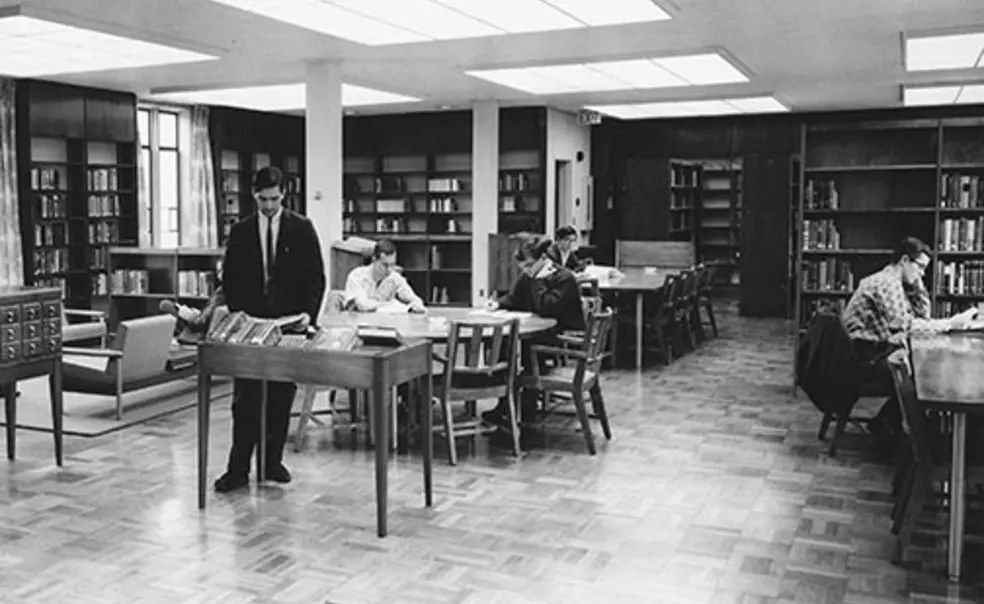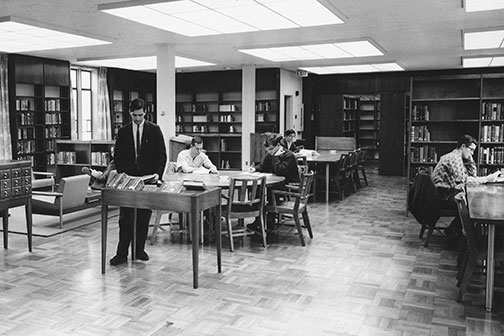When President Robert Goheen ’40 *48 spoke at the dedication of Wilcox Hall, he felt relief that it was finished at last: a dining and social facility for the Woodrow Wilson Society of undergrads who wanted no part of the boisterous club life on Prospect Avenue. The high-minded project had been controversial from the start.
Long-delayed by construction flaws, Wilcox Hall formed part of New Quad, today’s Wilson College, a collection of modernistic dormitories. But the alumni classes funding New Quad had refused to give money for Wilcox Hall, lest it undercut the eating clubs. In the end, funding came from the estate of a deceased stockbroker, T. Ferdinand Wilcox 1900.
Older Tigers were alert to any attack on the clubs, which were under national scrutiny following the Dirty Bicker of 1958, when 23 students — more than half of whom were Jewish — were not accepted to any club. To the traditionalists, Wilcox Hall was the first, insidious step toward a “college system” that would put the more vulnerable eating clubs out of business and huddle nerdy students in a “social wastebasket.” (Graduate students had different concerns, protesting the building’s architecture.)
To Goheen, attuned to the spirit of a more egalitarian postwar age, New Quad promised to eliminate “the stark choice between a club or nothing.”
One speaker on dedication day, Oct. 21, was Tyll van Geel ’62, head of the Woodrow Wilson Society. The son of immigrants, he was painfully aware of “the social-class split” on campus and the exclusivity of the old-money clubs. “We were all genuinely grateful for this facility,” he recalls today. Instead of Prospect’s booze and dancing, Wilcox Hall hosted a Peace Corps recruiter, a lecture by six-time Socialist presidential candidate Norman Thomas 1905, and a young professor analyzing Shakespeare.
In the Wilcox lounge, undergrads sprawled reading Nabokov in modernist Scandinavian seats, orange couches, and womb chairs, with abstract paintings on the walls. The dark-paneled dens of the eating clubs seemed very far away.













No responses yet